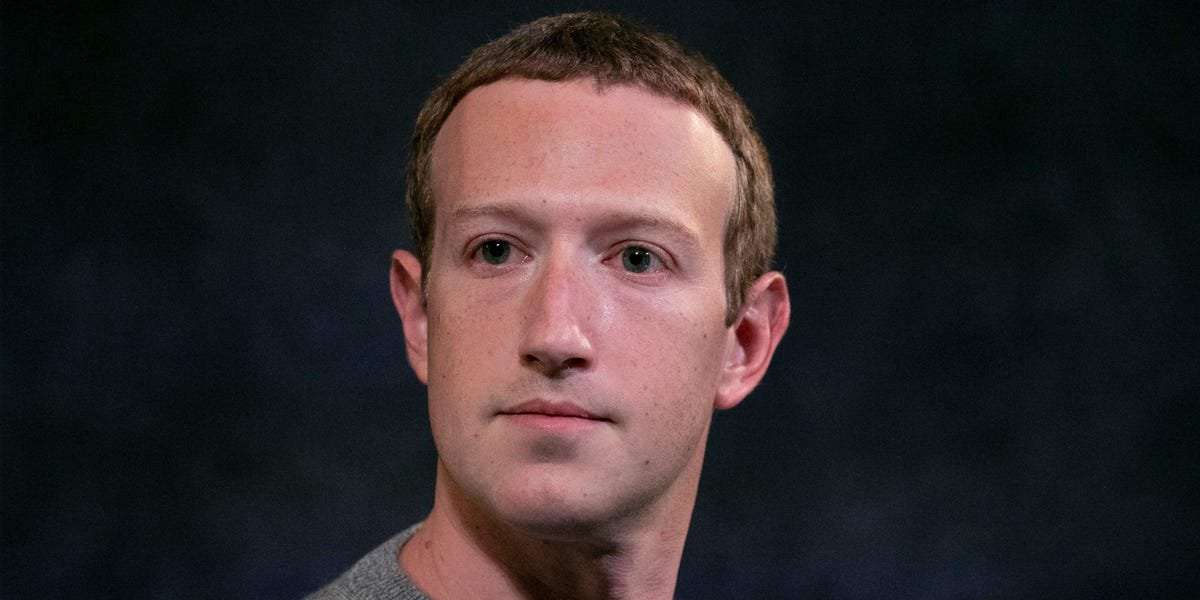An international coalition of over 300 scientists published an open letter to Mark Zuckerberg on Monday.
They demanded access to Meta's research on how Facebook and Instagram affect child and teen mental health.
Leaked internal research found that Instagram could cause body image issues among teen girls.
Get the latest tech trends & innovations — delivered daily to your inbox. Loading Something is loading. Email address By clicking ‘Sign up’, you agree to receive marketing emails from Insider as well as other partner offers and accept our Terms of Service and Privacy Policy
An international coalition of more than 300 scientists working in the fields of psychology, technology, and health have published an open letter to Mark Zuckerberg, asking the Meta CEO to open his company's doors to outside researchers who need to investigate the effects of Facebook and Instagram on child and teen mental health.
The letter was written in response to internal documents leaked to The Wall Street Journal by whistleblower Frances Haugen. Internal research by Meta found that one in three teen girls said using Instagram made them feel worse about their bodies.
The open letter, published Monday, says that although the research leaked by Haugen doesn't definitively prove Meta's platforms have an adverse effect on teen and child mental health, the issues at stake are too serious for the company to keep its research behind closed doors.
The letter also says that based on the limited public information about Meta's research techniques, its internal studies aren't thorough enough.
"We have only a fragmented picture of the studies your companies are conducting," the letter to Zuckerberg says. "We do not believe that the methodologies seen so far meet the high scientific standards required to responsibly investigate the mental health of children and adolescents."
It continues: "You and your organisations have an ethical and moral obligation to align your internal research on children and adolescents with established standards for evidence in mental health science."
The letter says Meta can commit to safeguarding teen mental health by introducing "gold standard transparency," allowing outside researchers to scrutinize and participate in its research. It also says Meta can participate in external studies around the world, offering up its data voluntarily.
"Combining Meta data with large-scale cohort projects will materially advance how we understand implications of the online world for mental health," the letter says.
The letter concludes by asking Meta to create an independent oversight trust that would monitor and study adolescent and child mental health. It compared the structure of the proposed trust to Meta's existing Oversight Board model.
"In place of quasi-judicial rulings the trust would conduct independent scientific oversight," the letter says.
When the letter was published it had 293 signatories. Prof. Andrew Przybylski, one of the letter's authors, told Insider in an interview that more scientists had since signed to push the figure above 300.
Przybylski said the aim of the letter wasn't to single out Meta among Big Tech companies. "This is about taking Mark [Zuckerberg] and the executives at their word that they care," he said.
Instagram CEO Adam Mosseri is due to testify before Congress about children's safety on the platform Tuesday. Instagram postponed the launch of its planned new product "Instagram for Kids" in September, citing the backlash provoked by Haugen's leaked documents.
When contacted by Insider about the letter, a Meta spokesperson said: "This is an industry-wide challenge. A survey from just last month suggested that more US teens are using TikTok and YouTube than Instagram or Facebook, which is why we need an industry-wide effort to understand the role of social media in young people's lives."
The spokesperson did not specify which survey they were referring to, but a Forrester survey of 4,602 Americans aged 12 to 17, published last month, found that 63% of respondents used TikTok on a weekly basis compared with 57% for Instagram. It also found 72% of respondents used YouTube weekly. It did not mention Facebook.

Encrusted_ringpiece on December 7th, 2021 at 23:59 UTC »
I like to imagine 300 scientists ringing Zuckerbergs door bell, and him opening the door eating a piece of toast.
stench_montana on December 7th, 2021 at 23:47 UTC »
To quote a scene from David Foster Wallace in the movie End of the Tour
"As the Internet grows in the next 10, 15 years... and virtual reality pornography becomes a reality, we're gonna have to develop some real machinery inside our guts... to turn off pure, unalloyed pleasure. Or, I don't know about you, I'm gonna have to leave the planet. 'Cause the technology is just gonna get better and better. And it's gonna get easier and easier... and more and more convenient and more and more pleasurable... to sit alone with images on a screen... given to us by people who do not love us but want our money. And that's fine in low doses, but if it's the basic main staple of your diet, you're gonna die.
ThunderingRimuru on December 7th, 2021 at 21:53 UTC »
and of course, he will refuse